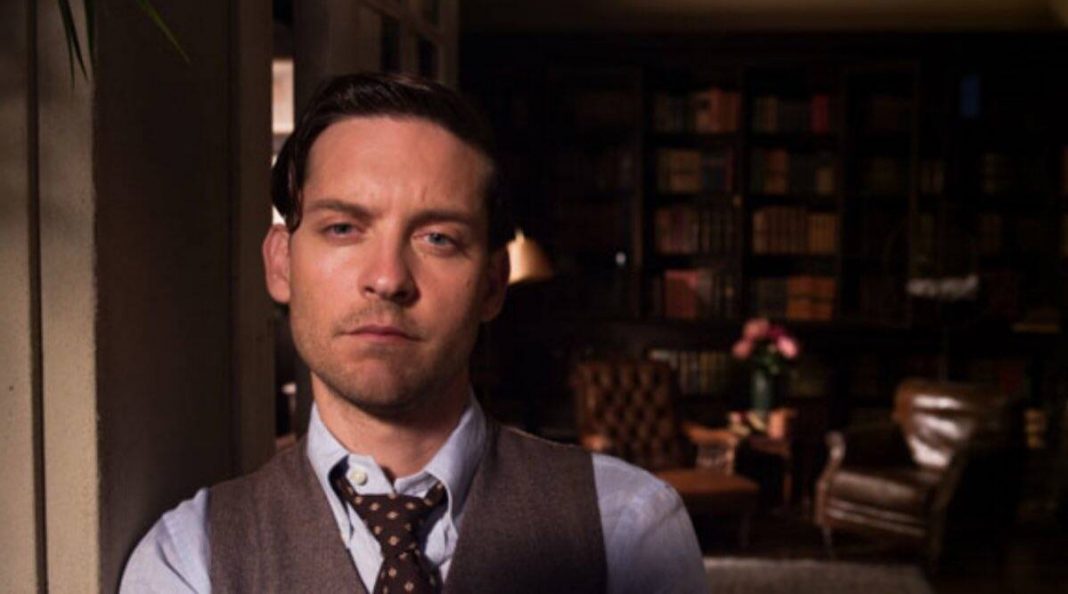Nick Carraway in Scott Fitzgerald’s The Great Gatsby is a wry narrator and a reticent observer. In the film, he’s almost the same, except that he’s a man scripting his memories from an asylum. He’s an abstraction just like the titular Gatsby himself. Somehow, Tobey Maguire, who has played similar roles for most of his life that seem close to his personality, fit this role for the 2013 spectacle, perhaps more than any other actor could. It was a performance that wasn’t given due credit as many wrote him off for being miscast. However, Maguire showed the deeper and broken side of the man, with masterful restraint. He doesn’t try to steal the limelight from Leonardo DiCaprio’s Gatsby; he carves his own sorrowful figure in this tale of anguish, loss and betrayal. He humanises Nick Carraway and brings his pain alive. Maguire’s performance doesn’t evoke a flood of emotions, but instead it feels like short, sharp and painful stabs, the quiet subtlety that Scott Fitzgerald had intended in the novel.
The novel had encapsulated the era of the 1920s, a time of excessive pleasure-seeking, the Jazz age, the speakeasies, and was a reflection of various timelines in Fitzgerald’s youth. Reeking of opulence and heartbreak, the film, while struggling to remain faithful to the themes of the novel, is a period drama, with modern pop in the background, fused with psychological thriller elements. The story is told from the perspective of Maguire’s Nick Carraway, the unreliable narrator who is writing memoirs from an asylum on the advice of his therapist. It’s a tricky plot device, but the film pulls it off well. He starts talking about Jay Gatsby, the most ‘hopeful man he has ever met’. It sounds strange that such a twisted tale of underlying deception could have even a whiff of something as wholesome as hope, but Maguire’s Nick Carraway convinces you it does. Gatsby isn’t a hero, instead he is someone that you would think twice before you start rooting for. Nevertheless, Maguire brings out the quiet admiration, bordering on suppressed envy for him and slowly you begin to believe that Gatsby isn’t a bad sort, just you know, someone who engages in illegal activities from time to time.
We go back in time and see Nick Carraway, as a disillusioned mid-Westerner, struggling to make something of himself. He moves next door to Gatsby’s palatial mansion and tries to establish himself as a stockbroker. While the first half of the film focuses on lavishness, the second half cuts to the heart of the story: the real dynamics between the characters. Gatsby’s passion for the weak-willed Daisy (Carey Mulligan), a woman he lost to the rather crass and brutal Tom Buchanan. He uses Nick to try and get her back, and of course events spiral out of control and the true motivations of people emerge, almost turning it into a noir drama of sorts. Tom frames Gatsby for a crime that he didn’t commit and Daisy’s complicit. Gatsby is shot dead, after being painted as a murderer in the media. A disgusted Nick leaves town, vowing to never come back again — yet, taking back the lessons of Gatsby’s unreal ability to hope.
Nick sees the real person in Gatsby, beyond his suave charm, a man who resides in the world of the ‘filthy rich’, and yet, doesn’t quite belong there. Nick understands that he is the only one who upholds the American Dream, as everything else seems to be a meaningless mass of luxury. Nick pays the final homage to Gatsby towards the end of the film, “They’re a rotten crowd. You’re worth the whole damn bunch together.”
The Great Gatsby is definitely one of Tobey Maguire’s understated films. Even if the film often got lost in its own grandeur, Maguire quietly stood out, serving as the perfect balance to Leonardo DiCaprio’s mangled and broken anti-hero.
